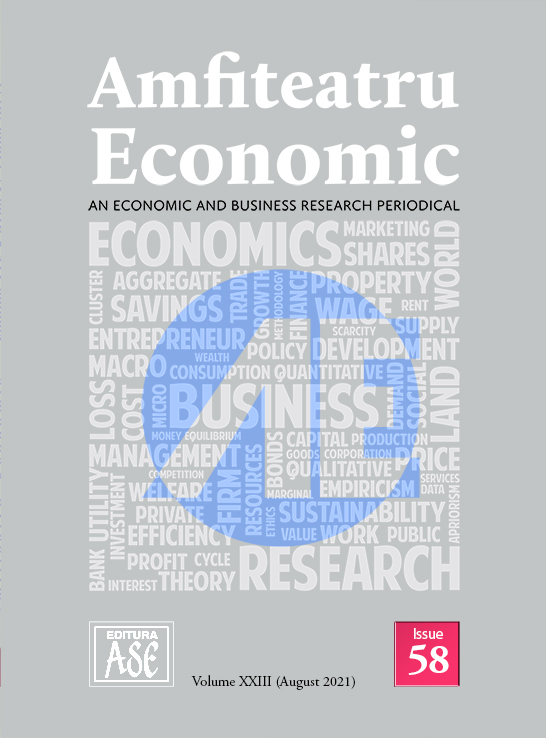Adaptability to Teleworking in European Countries
Adaptability to Teleworking in European Countries
Author(s): Aniela Bălăcescu, Aurelia Pătrașcu, Loredana Maria PăunescuSubject(s): Business Economy / Management
Published by: EDITURA ASE
Keywords: adaptability; teleworking; digitization; cluster analysis; digital disparities;
Summary/Abstract: The process of digital transformation and teleworking are some of the most debated topics in the specialized literature of the last decade due to the major impact they have on the stability, the evolution and the efficiency of the economy. The COVID-19 pandemic highlighted the competitive advantage offered to the national economies by the implementation of policies dedicated to the digitalization of the society and the economy. In the last year, national economies have been faced with huge challenges imposed by the continuation and adaptation of economic processes in the virtual environment. The pace of adaptability of the workforce to digital technologies, the functional and technical literacy of human resources, the work organization and the level of digitalization influence the economic and social performance of the countries. The main aim of this research is to determine the defining characteristics in terms of the ability to adapt to telework in 30 European countries, to classify them according to their digital performance, but also to analyze their differences and determine the directions of action to capitalize on the opportunities offered by the online environment. The results of this research highlight that despite the investments which the analyzed European countries have made in recent years in digital infrastructure, there are large disparities in terms of adaptability to telework, as follows: poor adaptability (Southern and South-Eastern Europe), medium (Central Europe), high adaptability (Western and Central Europe), very high adaptability (Northern and North-Western Europe). The research is intended to be a catalyst for data-driven discussions on the adaptability of the European countries to digital innovations and the process of managing adaptation by governments to meet the economic and social needs. The analysis of the potential for adaptation to telework represents a contribution to the exploring of potential post-crisis developments. The limits of the research are related to the involvement of only six variables, the analysis can be extended in future research to other variables as well.
Journal: Amfiteatru Economic
- Issue Year: XXIII/2021
- Issue No: 58
- Page Range: 683-699
- Page Count: 17
- Language: English

